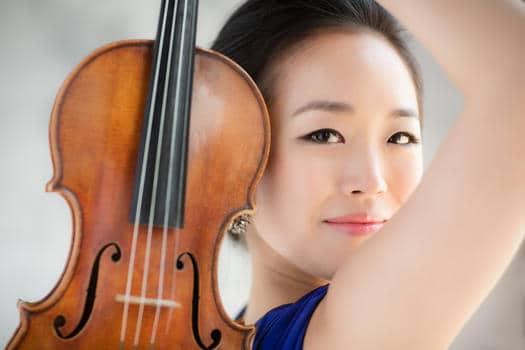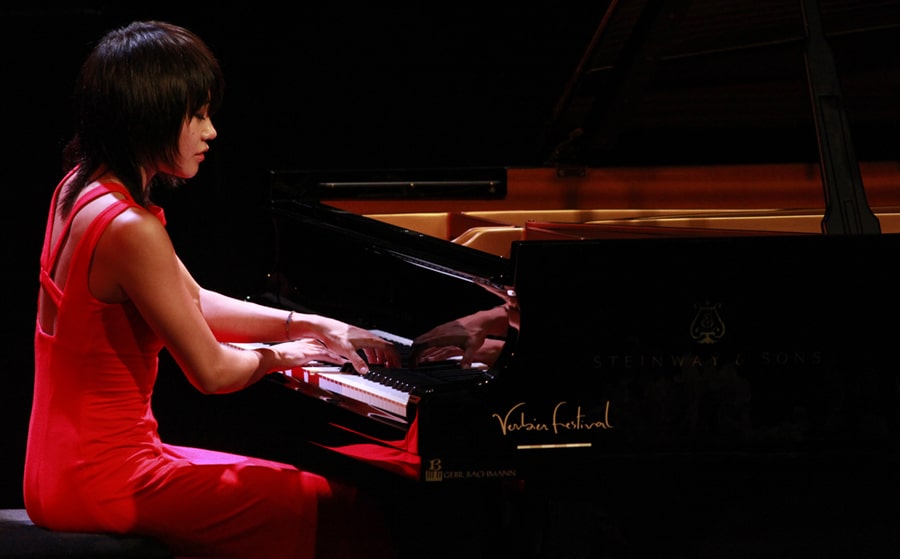Music ‘at risk of disappearing’ in UK secondary schools
mainMessage from the University of Sussex:
Research by the University of Sussex shows an increasing number of schools have reduced or completely removed music in the curriculum for lower secondary school students in years 7 to 9
– 70% of music teachers reported often teaching outside their subject area to ‘fill gaps’ in ‘core subjects’
– The English Baccalaureate (EBacc) is having a negative impact on the provision and uptake of music in schools
New research into Secondary Music Curriculum Provision between 2016-18/19 by the University of Sussex has revealed that music in schools is at significant risk of disappearing as schools offering music a subject, staffing levels and teaching hours in music are all in decline.
In particular, the EBacc, other performance measures and a squeeze on funding are cited as the main factors contributing to this continued decline.
Dr Ally Daubney, Senior Teaching Fellow in Education at the University of Sussex, said: “Having warned in 2016 that performance measures and funding cuts risk making music education in school extinct, our recent research highlights that the situation is now at crisis point in many secondary schools. We need to act now in order to reverse this decline and find ways to support schools to offer a sustained music education for all.”
Duncan Mackrill, Senior Teaching Fellow at the University of Sussex, said: “Music’s place in the secondary Curriculum continues to be precariously balanced or disappearing in a significant number of schools. Without a change to require a balanced curriculum in all schools we are in danger of music education becoming in many cases the preserve of those who can pay.”
Academics from the University’s School of Education and Social Work surveyed almost 500 schools this summer. The research discovered:
· An increasing number of schools reducing or completely removing music in the curriculum for year 7, 8 and 9 students, resulting in some schools now not offering music as a curriculum subject and in others taught only on an ‘enrichment day’ once a year.
· The EBacc specifically as having a negative impact on the provision and uptake of music in schools (within and beyond the curriculum) with some schools discouraging top set students from taking music at KS4 because of the EBacc, whilst in others lower ability students were prevented from taking music so they could concentrate on core subjects.
· A decline in the number of schools offering GCSE music and other Key Stage 4 qualifications with some schools only offering it outside of school hours if at all.
· 15.4% fewer centres offering A Level music in 2018 compared to 2016, and a reduction of 31.7% in A Level music technology. This is likely to be reflected in the decreasing number of candidates sitting these qualifications in 2019 and 2020.
· An increase in music teachers teaching outside their subject area – over 70% cited often doing so since 2016, and a potential rise in redundancies for music teachers in the next academic year, with some responses noting that music teachers were not being replaced when leaving or retiring.
The research was undertaken between June and September 2018 and follows on from research undertaken for the period 2012-16.






“….in some schools now not offering music as a curriculum subject and in others taught only on an ‘enrichment day’ once a year.”
‘enrichment day’.
What a nicely inclusive and wholesome event.
Let’s hope there are enough safe zones in case somebody decides to be upset about being exposed to unknown or upsetting sounds.
Yes, like clapping!
Yes this is indeed sad and worrying, but it is not confined to Music. There are a whole raft of subjects which are now absent from the secondary curriculum, Geology, Astronomy, Principles of Accounts, Electronics to name just a few.
The reason is simply because there are just not enough qualified staff able to deliver these kind of courses; and if they are there, they as deployed to teach the standard subjects.
Whilst not all these subjects need be a compulsory part of the timetable, they are good for motivating and enthusing youngsters, who might otherwise give up on all the traditional offerings. The E Bacc is a backward looking 1950’s model for all
and I’m thankful glad that [i] I’m out of teaching now and [ii] that my grandkinds
have got parents who provide all the extra interesting stuff to supplement what little interest modern “schooling” has to offer.
The only way to save music in the schools is to train a wave of girls to become conductors and replace all the men.
It dissappeared from Australian State Schools years ago! I was an ” honorary grandfather” at a small country school in NSW back in the 90s and was horrified to hear the teaxher for the music lesson put on a cd of ” The Purple People Eaters”. I protested and offered my services as guide, teacher or whatever and my own quite reasonable cd collection. The offer was received with a shrug and ” they wouldn’t understand it”
R andR has a lot to answer for, the teacher concerned was 20 years my junior.